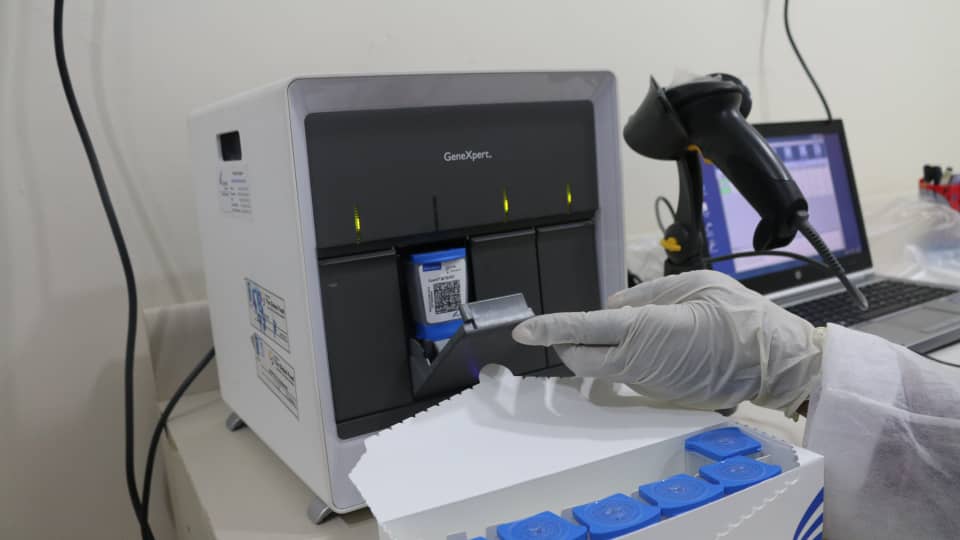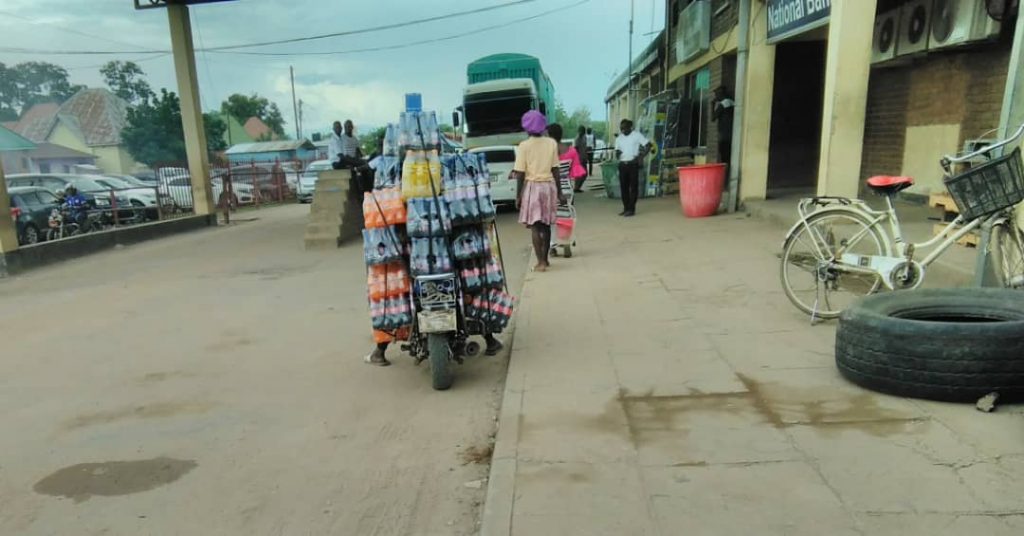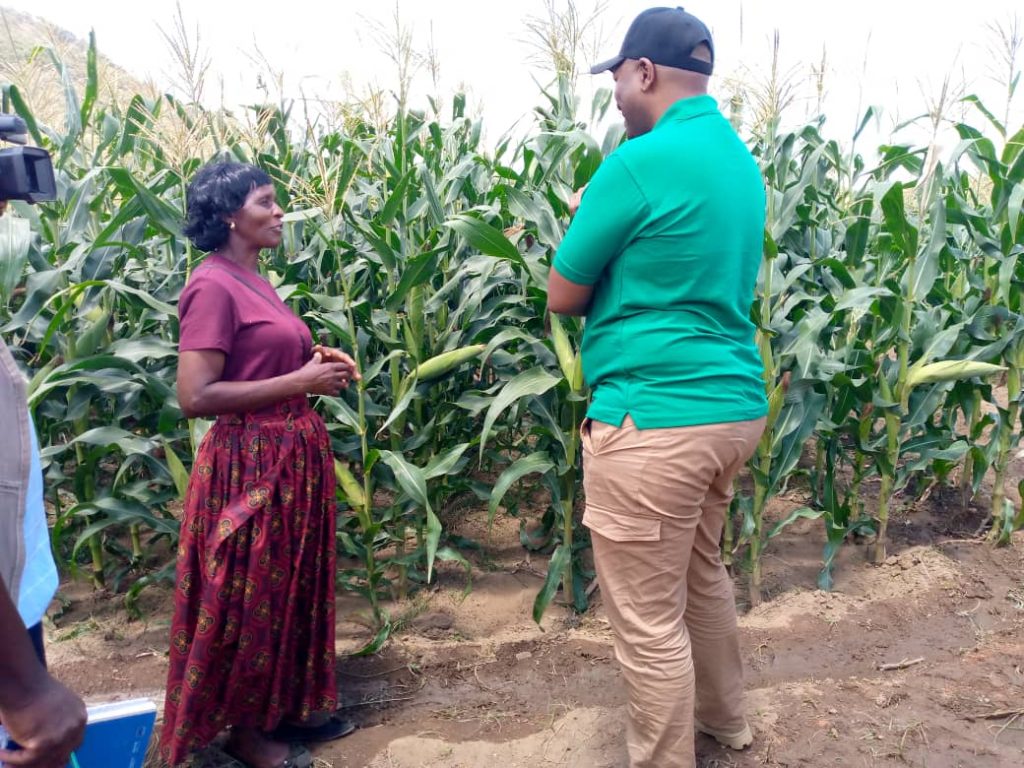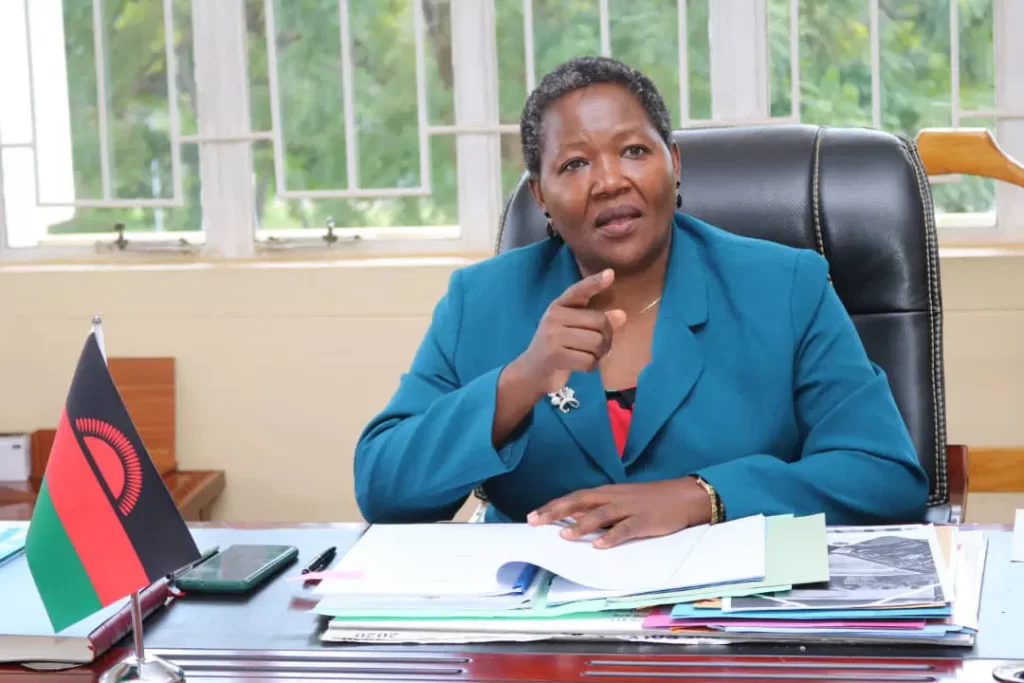Development Desk Promotes Conservation Agriculture in Traditional Authority Mwalweni
Written by admin on December 11, 2019
By Harold Mwale
Effects of climate change and environmental degradation have not spared the area of Traditional Authority Mwalweni which is under Saint Francis De Sales Parish of Karonga Diocese in Rumphi District.
The topography of the area makes it susceptible to soil erosion, especially when farmers do not follow proper soil and water conservation practices and or leave the land bare, due to deforestation and other practices. Most farmers in the area cultivate their crops in hilly areas which necessitates proper soil and water conservation technologies.
It is against this background that the Development Desk through Africa Australia Community Engagement Scheme Plus (AACES Plus – A+) organized a farmer field school field day at Kasonkhwe in TA Mwalweni in order to promote conservation agriculture in the community.
The field day among other things aimed at promoting the use of locally available resources to conserve soil and water.
The farmer field school which was mounted in August 2019 and managed by 30 farmers where 17 are females include plots showcasing different technologies where farmers through irrigation farming experiment use of locally available resources to conserve soil and water. Plots showcasing three core elements of conservation agriculture including minimal tillage operations, permanent vegetative residue for soil cover (mulching using thatching grass), and rotation of primary crops were mounted and showcased.
In addition, crop production plots such as tomato production, Irish potatoes, use of Tephrosia vogelii to control fall army worm, leafy vegetable production, and other water conservation technologies such as check dams, swales, and use of contour and box ridges were also showcased during the field day. This was done to encourage participating farmers shift from conventional tillage practices to conservation ones.
Farmers appreciated the technologies and commended their fellow farmers for significantly implementing the Farmer Field School approach and learning from their own experiences through hands on experiments from the different plots at the school.
The field day ended with processing where the government agriculture extension field staff took a leading facilitation role to explain the importance of conservation agriculture and Farmer Field School approach which include: enabling smallholder farmers to master the management skills required for sustainable production intensification; increasing ownership since Farmer Field Schools are constructed by smallholder farmers; increasing farmers’ access to extension services since they mostly have limited access to education, information, extension services, market access and financial capital.
The government extension staff also explained that No-tillage has beneficial effects on soil preservation. The retention of crop residues at the soil surface prevents water erosion by reducing the direct impact of raindrops and that conservation agriculture improves soil quality, optimizes crop yields and reduces input costs. It also improves water capture and use efficiency.
Small-scale farmers and land users often lack access to the agricultural services they require to enhance their knowledge and skills in order to manage increasingly difficult agro-ecosystems. Smallholder farmers and other rural land users manage increasingly difficult environments while also being subjected to changes driven by nature and outside pressures.
These land users are the country’s largest group of custodians of biodiversity and play a critical role in efficiently managing natural resources like water and soil, thus ensuring that future generations can also continue to use and benefit from these resources. It is, therefore, recommended that promotion of conservation agriculture through Farmer Field Schools be offered special attention.





